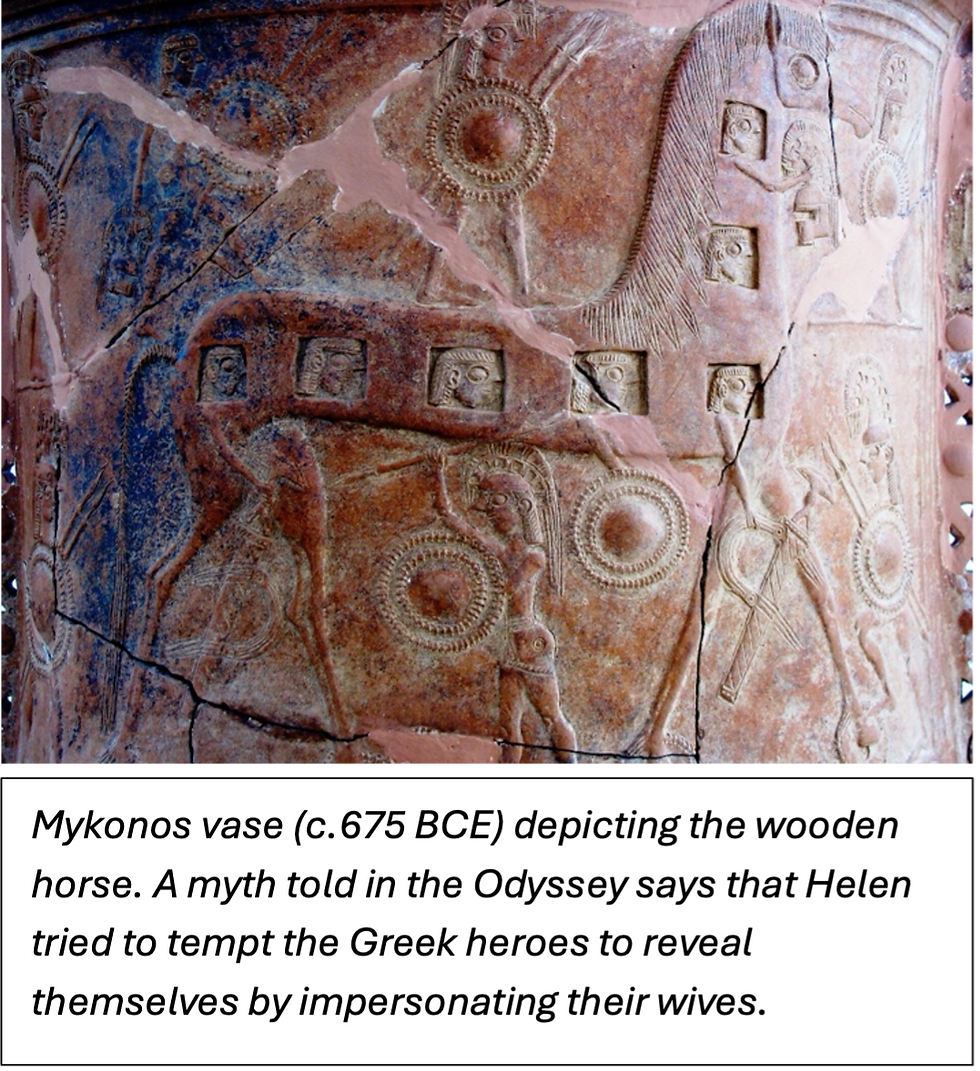Helen of Troy: Victim, Villain, or Survivor?
- achillesreel

- Sep 30, 2025
- 2 min read
Saani

Helen of Troy has been immortalized as "the face that launched a thousand ships," and is a striking symbol of beauty and destruction. Yet, depending on the perspective taken, Helen can be seen as a passive victim, a cunning manipulator, or even a resilient survivor navigating forces beyond her control. Her story, shaped by ancient texts and modern retellings, encourages exploration into the question of how perspectives shape our understanding of history and myth.
Helen the Victim

In many classical sources, including Homer’s Iliad, Helen is portrayed as a pawn in a game of gods and men. She is taken from her home in Sparta, either willingly or by force, by Paris of Troy. Some versions suggest that the goddess Aphrodite, having promised Helen to Paris as a reward, ensured that Helen had no real agency in her fate. This reading presents Helen as a tragic figure, used by men and gods for their own ambitions and ultimately blamed for a war she had no control over. This perspective reflects on the limited power women had in ancient societies and the ways in which their stories were shaped by male narratives.

Helen the Villain
However, not all interpretations are so sympathetic - in some accounts, Helen is seen as complicit, choosing to abandon her husband, Menelaus, and her child for passion or self-interest. Euripides, in his play Trojan Women, accuses Helen of using her beauty as a weapon, manipulating men to achieve her own desires. This perspective sees Helen as a dangerous force, someone who willingly played a role in the devastation of Troy and the deaths of thousands. Here, Helen is not a powerless figure but one who, whether through selfishness or recklessness, set the catastrophe in motion!
Helen the Survivor
A more modern interpretation casts Helen as neither victim nor villain, but as a survivor navigating a world in which she has little control. In some versions, she is seen trying to escape Troy or expressing regret for her actions. Helen is depicted as a gracious and intelligent queen who has endured years of conflict and remains standing. This reading gives Helen depth—she is neither an entirely innocent figure nor a malicious schemer, but a woman forced to make difficult choices in a world dominated by men and gods.
Perspectives
The story of Helen of Troy is not static; it has been reshaped by different cultures and eras, reflecting shifting attitudes toward women, beauty, and agency. From the helpless damsel to the calculating villain to the resilient survivor, Helen is a reminder that history and mythology is never restricted to just one version of events. Helen’s story is an invitation to question how narratives are constructed and whose voices are heard. In a world where perceptions of women are still debated and redefined, Helen remains a powerful figure - a reminder that every story has more than one side.



Comments